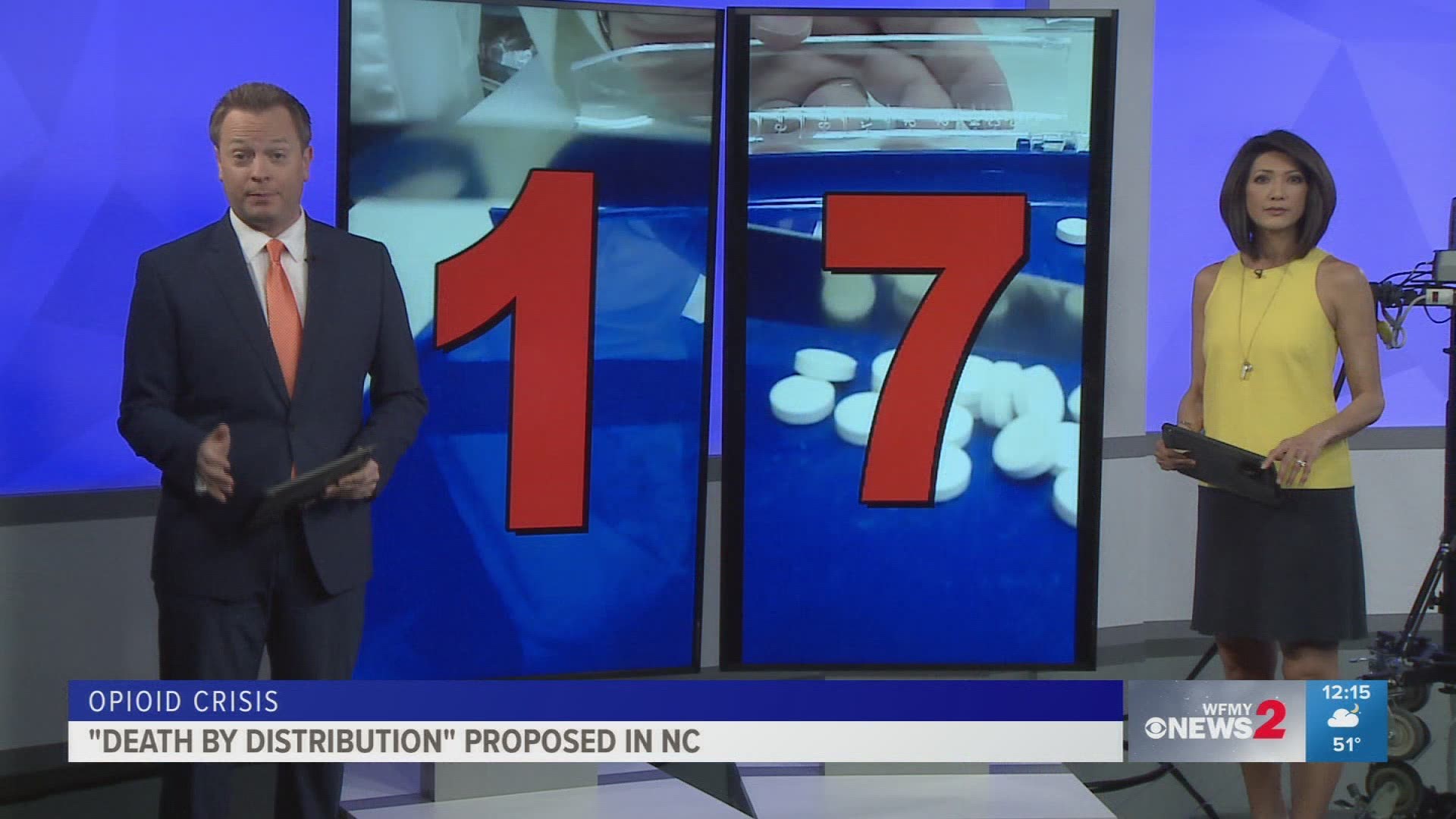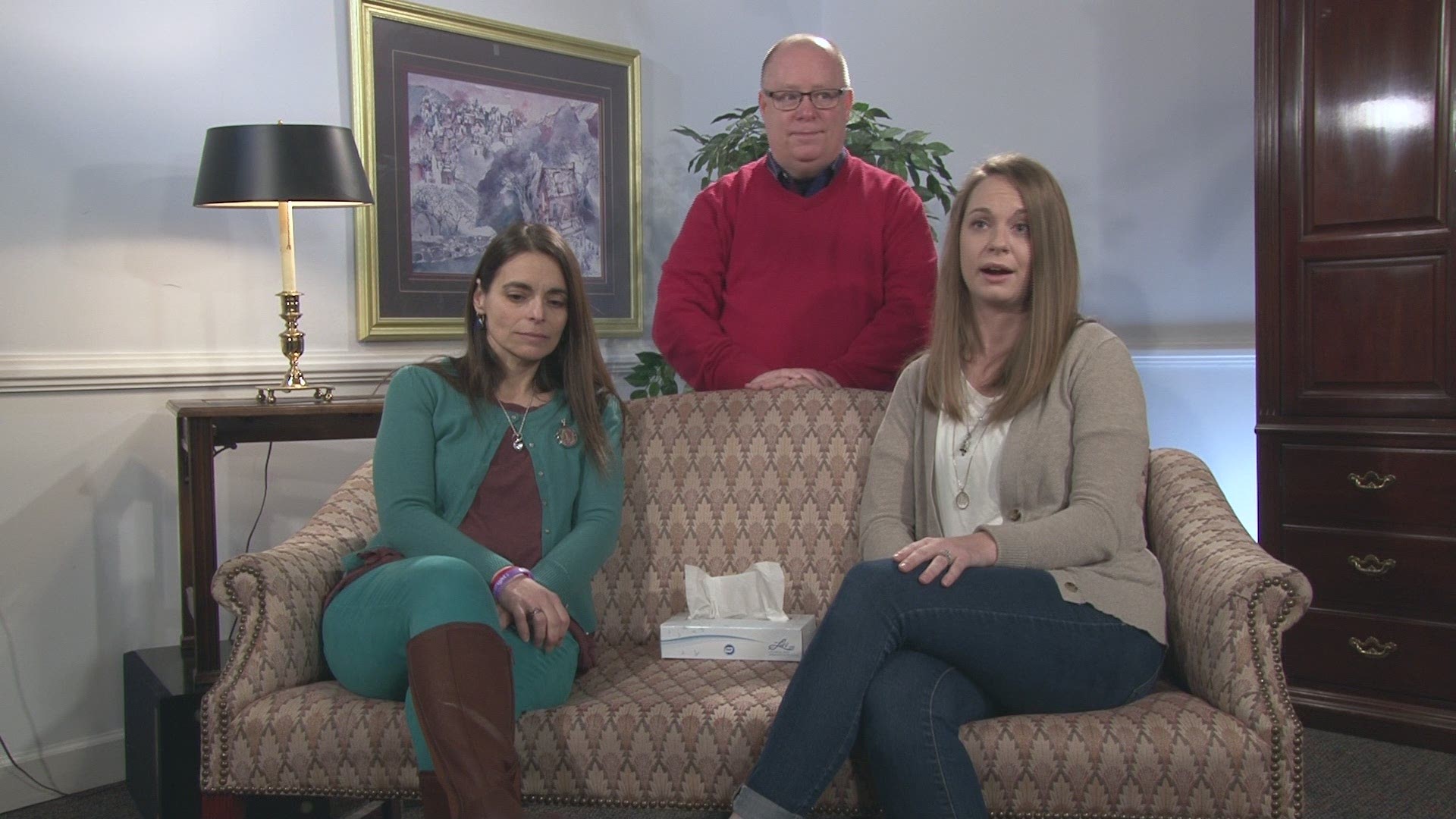RALEIGH, N.C. — People who sell drugs that contribute to an overdose death would be more easily convicted of a high-level felony under a North Carolina bill that awaits Gov. Roy Cooper's signature.
The House voted 82-29 on Thursday to pass "Death by Distribution" legislation that makes it a Class C or B2 felony to illegally sell drugs that result in an overdose death.
Cooper has not said whether he would sign it, but law enforcement agencies across the state have expressed support for the measure, which advocates say will help crack down on illegal drug dealing and fight the opioid epidemic.
Currently, drug dealers who contribute to an overdose death can face second-degree murder charges, but prosecutors must prove malice - a high standard that makes conviction difficult. The bill would allow prosecutors to pursue high-level felony charges with penalties comparable to those given for second degree murder charges_without having to prove malice.
District Attorney Benjamin David of New Hanover and Pender counties said malice is hard to prove because juries often feel drug dealers are acting for profit, not out of malice. Juries are also hesitant convict defendants of murder when overdose victims voluntarily ingest drugs, he said.
Of the 52 overdose death cases David handled in the past year, he said only three drug dealers were prosecuted. Each was prosecuted on manslaughter charges, resulting in one- or two-year prison sentences.
"With this bill, you're looking at eight to 10 years, which I think is more appropriate," David said.
Rep. Dean Arp of Union County, a Republican sponsor of the measure, compared selling drugs that result in overdose deaths to killing someone while driving drunk.
"You didn't do it with malice, but you did kill somebody so you still have to be held accountable," he said.
Arp said the bill does not change the state's Good Samaritan law, which offers legal protection to a person who calls 911 to report an overdose. But opponents say the bill would deter drug users from calling 911 and will result in more drug overdose deaths.
"It's an unintended consequence, but it's a real consequence," said Democratic Rep. Marcia Morey of Durham County during the floor debate Thursday.
Protesters staged a die-in with giant tombstone-shaped signs outside the legislative building Wednesday, shortly before the Senate passed the bill. The protest was organized by the North Carolina Urban Survivor's Union, an advocacy organization for drug users that provides clean needle exchanges and other services.
Louise Beale Vincent, whose daughter died of an overdose in 2016, has overdosed herself and has witnessed dozens of others overdose. She believes the Good Samaritan law has made people more likely to call 911, but that the new legislation could erode some of that progress.
If stiffer penalties were possible, she said a drug user might think: "The last thing I want to do is call a number that's going to bring police to my house."
David maintains that even if the bill is signed into law, district attorneys can use discretion to assess each case and that the bill is intended to go after serious drug dealers.
""There's a meaningful difference between drug traffickers who don't touch their own supply and drug users who sell to friends to support their own habit," he said.
The North Carolina Harm Reduction Coalition has come out against the bill, but coalition board member Diannee Carden-Glenn said she supports punishing drug traffickers.
Carden-Glenn lost her son to a drug overdose in 2012 and subsequently advocated for the Good Samaritan Law to protect drug users. However, she said the legislation passed Thursday is a "hard pill to swallow," after all of her previous advocacy work and will hurt the same people that the Good Samaritan law was intended to protect.
"There's a higher likelihood that it'll affect friends, neighbors, and people who really need help," she said.


